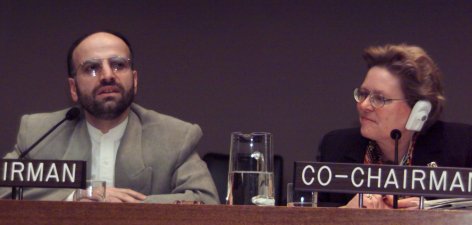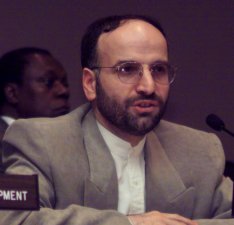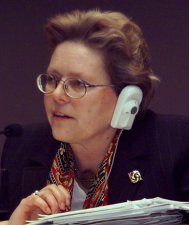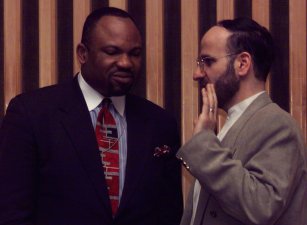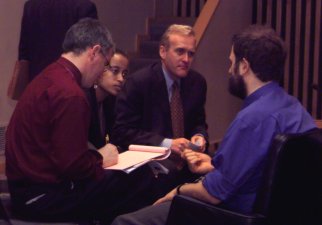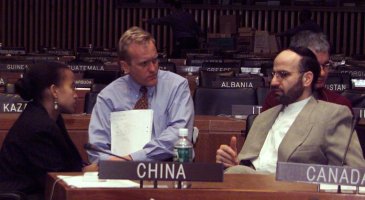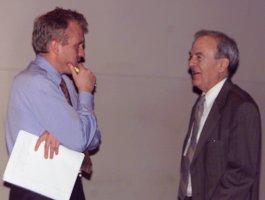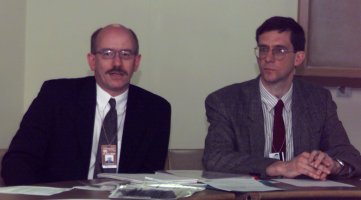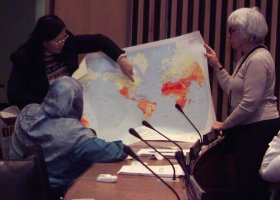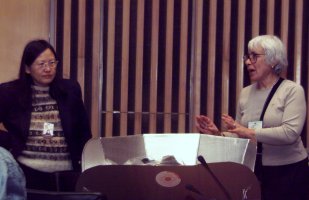|
|
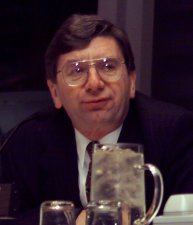
|
 The
World Bank's statement to the Energy Expert Group
The
World Bank's statement to the Energy Expert Group
The
World Bank underlined the importance of sustainable energy
within the Bank and noted its recently approved environmental strategy
for energy, "Fuel for Thought." Noting the need for a proactive
approach, he emphasized the importance of, inter alia: rural
energy development; increased action on urban air pollution; development
of new technologies; promotion of renewable energy sources; and
the effective transfer of knowledge. He stressed the importance
of motivating investors to see clean energy as a good and profitable
business, and underlined the benefits of deregulation, decentralized
private commercial schemes, and the development of new business
models. He identified current activities of the International Finance
Corporation (IFC), and noted the potential catalytic role of the
recently approved carbon fund.
|
 JoAnne
DiSano, Director, UN Division on Sustainable Development
JoAnne
DiSano, Director, UN Division on Sustainable Development
Speaking
on the interagency task force on energy, DiSano said the interagency
task force on energy is comprised of all UN agencies that have
an interest and involvement in the area of energy. She said the
task force was currently compiling a comprehensive overview of
activities the agencies are involved in. She pledged to work with
the CO-Chairs to ensure that comprehensive input is made from
a regional perspective and that action items raised are operationalized.
|
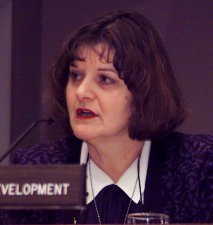 |
|
|
Ositadinma
Anaedu, Nigeria, and Co-Chair Salamat |
|
Discussion of the Intersessional Programme of Work and the
Provisional Agenda for the Expert Group's second session
|
|
On
the intersessional programme of work, Portugal, on behalf of
the European Union, welcomed the emphasis on activities at the
regional level and the importance of drawing on experiences. He
drew attention to the World Bank's energy week and the work of the
Inter-Agency task force on energy.
|
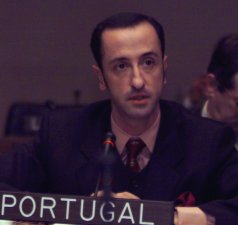 |
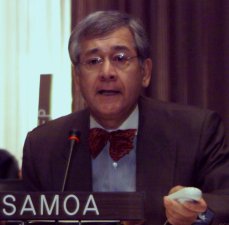
|
On the intersessional
programme of work, Samoa (left) welcomed the attention paid
to regional initiatives stating that this will cater to the problems
of the smaller countries. He mentioned an upcoming meeting on an
initiative that focuses on renewable energy islands.
|
|
Iceland
proposed soliciting from governments more input on success stories
and supported restructuring the Provisional Agenda to focus on success
stories, as the Expert Group's work was to search for solutions.
|
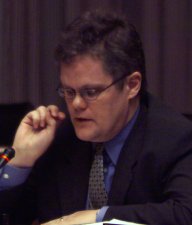 |
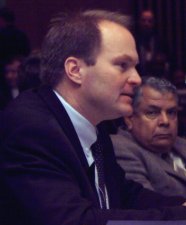 |
Denmark,
supported by the US (below), expressed disappointment and surprise
at the absence from the Provisional Agenda of consideration of market
reforms as an issue. Given the intergovernmental nature of the Expert
Group, he described his difficulties with not being allowed to place
the issue on the Agenda for discussion as the issue of market reforms
is an issue in many countries. |
|
On
the provisional agenda, the United States suggested that
an item on "Learning from each other: Success Stories in the Promotion
of Energy for Sustainable Development" be the focus of future discussion
at the Expert Group,
|
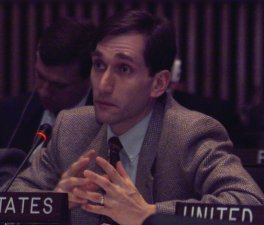 |
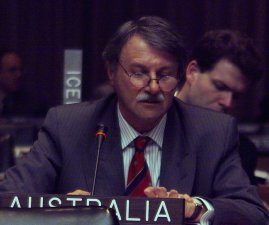 |
Australia
supported focusing on success stories at the next meeting and suggested
looking at energy use in different sectors
|
|
.
The G-77/China expressed concern that consideration of success
stories might overshadow the issues of capacity building, technology
transfer and financial resources as set out in the second item of
the Provisional Agenda and said success stories should be described
during "side events"
|
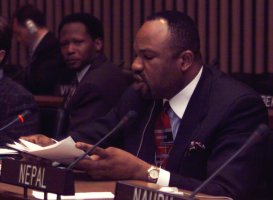
|
|
ENBers
Peter Doran, Angela Churie and Jon Hanks speak with Denmark (left)
and Co-Chair Salamat (right)
|
|
|
Richard Ottinger,
IUCN, speaks with Jon Hanks, ENB
|
UNEP's Sustainable Energy Advisory Facility (SEAF): Supporting
Sustainable Energy Initiatives in Developing Countries
SEAF
is a new effort in collaboration with the Danish Ministry of Foreign
Affairs that offers rapid and flexible assistance regarding sustainable
energy policies, strategies, and technologies. It aims to contribute
to the CSD-9 preparatory process. SEAF will provide information
and technical support for a variety of sustainable energy activities,
including: sector and national planning studies; climate change
mitigation studies; technology assessment and selection; individual
project assessment involving renewable energy technologies; and
links to financing institutions.
|
|
Solar Energy Technologies that make the lives of women better,
save energy and at a low cost
Solar
Cookers International and the NGO Energy and Climate Change Caucus
sponsored this event in order to provide a forum for participants
to talk about the problems and the situation of women and energy
in different countries, and to present low cost technologies, such
as solar cookers, that are available. For more information: mses@igc.org
For more information
on solar cookers, visit www.solarcooking.org
or email: sci@igc.org
|
|


